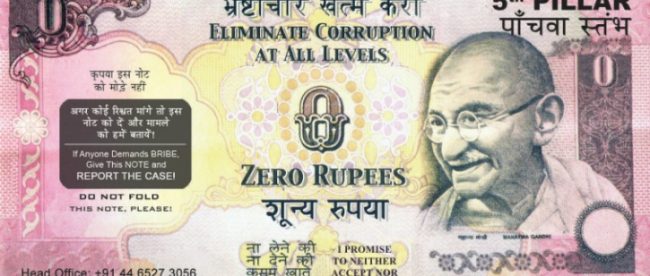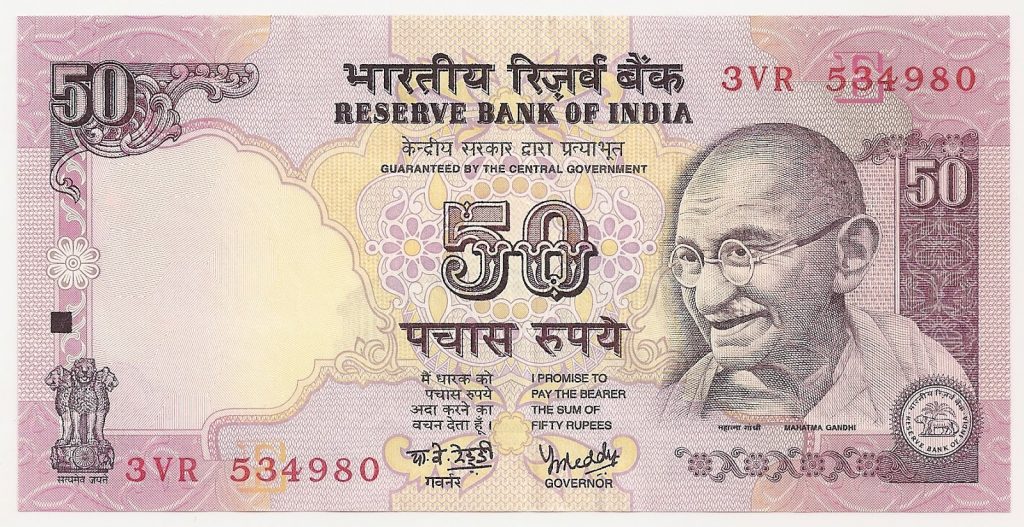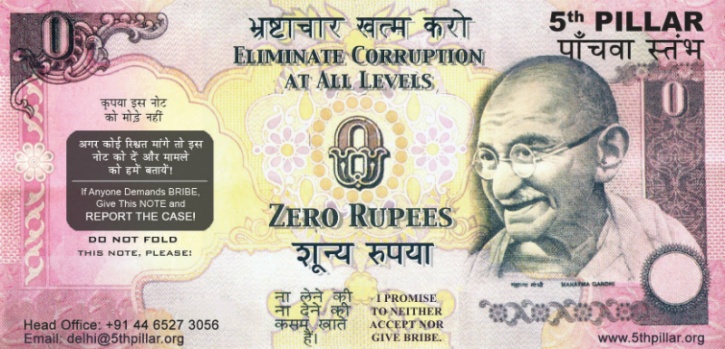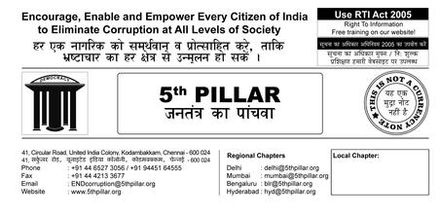The Counterfeit Money Which is Intentionally Worthless


The bill pictured above is India’s 50 rupee note. As of this writing, it’s worth about $0.75 US, but as India’s per capita GDP is about 3% of the United States’s, 50 rupees can be a significant amount of money, especially for the nation’s poor.
Unfortunately, 50 rupees can also be the cost of doing business in India. As the World Bank notes, “in India, petty corruption is pervasive – people often face situations where they are asked to pay bribes for public services that should be provided free.” If your income is only about 8,000 rupees a month, forking over fifty for things you’re already entitled can add up, and quickly. What’s a poor Indian to do?
Fake it, with one of these:

That’s a “zero rupee note” — it’s not legal tender, and even if it were, it’s worth (as it says pretty clearly) nothing. But that’s the point.
In 2007, an anti-corruption non-governmental organization called 5th Pillar started distributing the zero rupee note — for free — to citizens across the country, and particularly those with low incomes. In the first run of the program, 5th Pillar gave out about 25,000 such notes throughout the city of Chennai. The instructions were simple: if an official asked for a bribe (or, more likely, hinted at it), the consumer was to hand over a zero rupee note instead. The aim wasn’t to fool the bribe-demanding official into thinking he had been paid off, though. Rather, as India Times reported, “the idea of the note was to tell people that they no longer needed to be afraid of those in power, and to make them realize that they had nothing to lose — and that for the first time, they were not alone in the fight.” (The obverse side of the zero rupee note, seen below, makes it clear that the note wasn’t intended to be passed off as a real 50 rupee bill.)

And the initiative was a huge success, in one sense: the program has expanded rapidly. As of 2013, per the Economist, 5th Pillar had distributed more than 2.5 million of the notes, empowering would-be victims to quietly fight back. The organization began printing the notes in five languages commonly spoken in the country and has seen interest from other nations as well.
That said, whether it will make in-roads against the pervasive bribery culture is still to be seen.
Bonus fact: Because of a lack of infrastructure, open defecation and urination is the norm in some areas of India. And that’s more than gross — it’s dangerous, as such practices lead to disease. Access to facilities is part of the solution, but only part — behavioral change is also needed, as the city of Ahmedabad learned after installing 300 public toilets. People still did their business wherever, whenever, so the city decided to up the ante — by going with a pay toilet model, but in reverse. Per the AFP, “the Ahmedabad Municipal Corporation has decided to give residents one rupee a visit in a bid to draw them into its 300 public toilets and away from open areas and public walls, which often reek of urine. ”
From the Archives: Hawaii Dollars: The American plan to render some of its legit currency worthless, had parts of World War II gone differently.
Related: Fake money.
